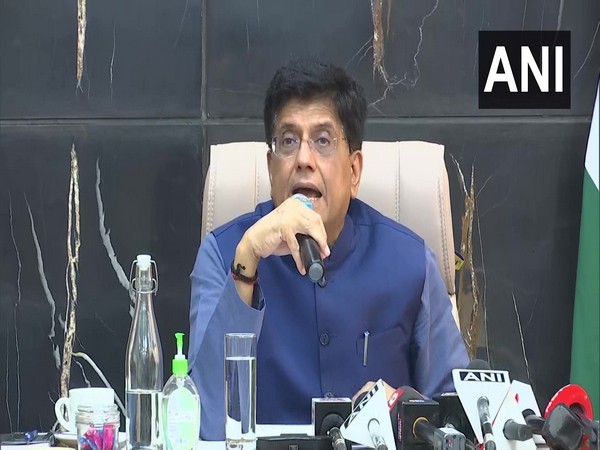India proposes to talk about gender equality, women in trade pact with EFTA group: Goyal
Steps are being taken to reduce the time period for granting of patents also, he said.Nilanshu Shekhar, founding partner at KAnalysis, said that in recent years, the government has provided a significant push towards promoting women innovators, including expedited examination of patents where the applicant or at least one of the applicants is a female.

- Country:
- India
India has proposed to discuss issues related to gender equality and women in a free trade agreement with the four-nation European Free Trade Association (EFTA), Commerce and Industry Minister Piyush Goyal said on Wednesday.
He said that a certain section thinks that India is hesitant to negotiate these new issues in a free trade agreement with its trading partners.
''Today I was discussing a free trade agreement with the four EFTA countries, and you will be happy to know while most people think India is hesitant to engage on modern subjects or subjects like gender equality and women, the EFTA countries did not mind if we did not have a chapter on women in the FTA (but) it is India which proposed that we will talk about gender equality and women in our FTA,'' Goyal said while addressing at the world intellectual property day 2023 celebrations.
These remarks assume significance as earlier India had asserted that it would not like to include these subjects in a trade pact as there are other platforms to discuss these issues.
The present membership of EFTA is limited to four countries – Switzerland, Norway, Iceland and Liechtenstein. These countries are not part of the European Union (EU).
EFTA is an inter-governmental organisation for the promotion and intensification of free trade. It was founded as an alternative for states that did not wish to join the European Community (EC). A joint study group was formally launched on December 1, 2006, on the proposed Broad-based Trade and Investment Agreement (BTIA). The group was mandated to take a comprehensive view of bilateral economic linkages between India and EFTA and to examine the feasibility of the agreement. Talking about India's patent office, the minister said the ministry is taking a series of steps to modernise it and make the processes simple for filing IPR (intellectual property rights) applications.
''About 1,000 new posts have been created in the IP office so that we have many many more controllers, so that we can clear patent applications. I am personally taking review to see how we can digitalise the entire IP ecosystem,'' he noted.
Goyal expressed hope that in the next few weeks, there would be zero interface between individuals and lawyers and the IP office as everything will be only on video conferencing and nobody will be allowed to enter the IP offices.
''The idea is to develop a complete corruption-free regime,'' he added.
Meanwhile briefing media, Controller General of Patents Designs and Trademarks (CGPDTM) Unnat Pandit said that as many as 82,000 patent applications have been filed in the last fiscal, out of which 58 per cent are by Indian firms.
''It is a clear reflection of IP-driven development happening in India,'' he said, adding 19 new IPR chairs have been set up in different universities and 22 new Technology and Innovation Support Center (TISC) centres have been announced.
To facilitate the filing of IP applications, the number of IP facilitators has been increased to 2,000 from 465 earlier. Steps are being taken to reduce the time period for granting of patents also, he said.
Nilanshu Shekhar, founding partner at KAnalysis, said that in recent years, the government has provided a significant push towards promoting women innovators, including expedited examination of patents where the applicant or at least one of the applicants is a female. ''However, as the share of female innovators is still small in the overall pool, the government should focus on science streams in select universities to tap young talent and nurture their innovations. Even women in rural areas have a lot to contribute and should be encouraged to register their innovations through some government scheme as they tend to create solutions for real-life problems on an everyday basis,'' Shekhar said.
KAnalysis is a law firm specializing in patents and IPR.
(This story has not been edited by Devdiscourse staff and is auto-generated from a syndicated feed.)










